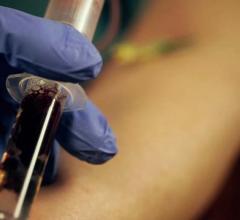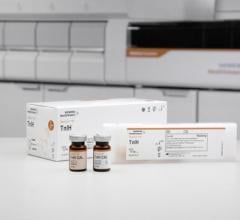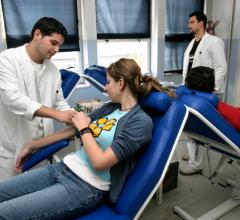
May 2, 2017 — CardioDx Inc. recently announced the publication of results from the multi-center, community-based PRESET Registry in the peer-reviewed journal, The American Journal of Medicine.
The study results provided further confirmation of the clinical utility of the Corus CAD test to help clinicians in real-world practice determine if their patients' symptoms are due to a blockage in the heart arteries, and if referral to cardiology or to advanced cardiac testing was necessary. Previously validated with a 96 percent negative predictive value and 89 percent sensitivity, the Corus CAD test is a precision medicine blood test that integrates age, sex and gene expression levels into a single score indicating the current likelihood of a significant narrowing or blockage in the coronary arteries, also known as obstructive coronary artery disease (CAD).
The PRESET Registry demonstrated that patients with low Corus CAD scores (defined as ≤15) were less likely to undergo cardiac referral, were unlikely to have positive findings on further cardiac work-up, and had a low rate of adverse cardiovascular events at one-year follow-up.
Every day, approximately 8,000 patients present to primary care clinics with signs and symptoms of obstructive CAD. Yet, a review of published patient data suggests that only 10 percent of patients presenting with chest pain to primary care clinicians for evaluation are actually found to have CAD. The majority of chest pain symptoms are caused by non-cardiac sources such as heartburn, muscle spasm, anxiety or lung-related conditions.2
"The PRESET Registry provides doctors and patients with further evidence that, as a first-line assessment tool for patients with symptoms suggestive of CAD in outpatient clinics, the age, sex and gene expression score (Corus CAD) can safely and reliably help clinicians direct cardiac care," said Joseph A. Ladapo, assistant professor, Division of General Internal Medicine and Health Services Research, David Geffen School of Medicine at University of California at Los Angeles. "Patients with low scores were less likely to undergo further cardiac evaluation and testing, and this saves some patients from being unnecessarily exposed to the risks of cardiac procedures and radiation from cardiac nuclear imaging, along with the costs associated with pursuing advanced cardiovascular testing."
The primary objective of the study was to evaluate the clinical utility or impact of the Corus CAD test on medical decision-making, specifically cardiac referrals. Results demonstrated that patients with low Corus CAD scores (≤ 5) had 85 percent decreased odds of referral for further cardiac evaluation or testing versus elevated Corus CAD scores ( > 15). Only 10 percent of patients with low Corus CAD test scores versus 44 percent of elevated scoring patients were referred by clinicians to cardiology or for advanced cardiac testing (unadjusted Odds Ratio (OR) = 0.15, p < 0.0001; adjusted OR after accounting for clinical covariates = 0.18, p < 0.001). Furthermore, when evaluating the Corus CAD score as a continuous variable from 1-40, the higher the Corus CAD score, the more likely the patient was to undergo cardiac referral. Major adverse events and revascularization were noted in 1.2 percent (3/252) of patients with low Corus CAD scores and 4.5 percent (14/314) of patients with elevated Corus CAD scores (p < 0.03).
For more information: www.amjmed.com


 October 09, 2019
October 09, 2019 









